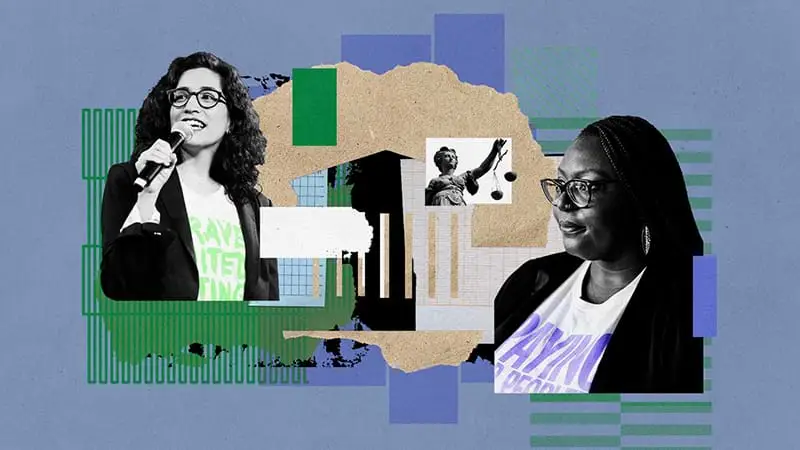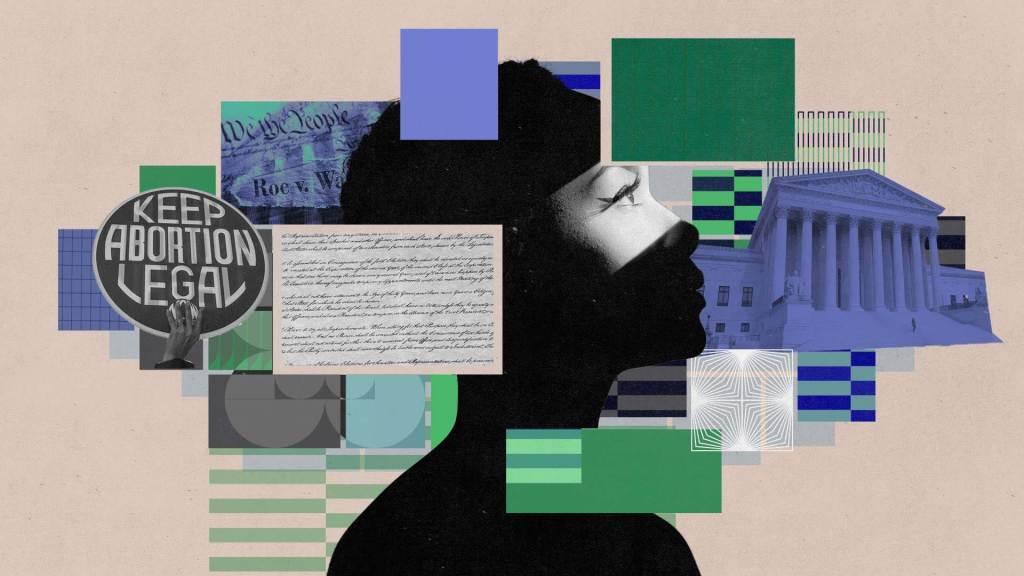 Getty
GettyHalf a century after the Supreme Court decision in Roe v. Wade, the long and contentious battle over reproductive rights in the United States is far from over. The ruling in Dobbs v. Jackson Women’s Health Organization abandoned nearly 50 years of precedent—and marked the first time the Supreme Court took away a fundamental right. The 50th anniversary of the landmark ruling on January 22 could have been a moment to celebrate a person’s right to bodily autonomy; instead it’s become not only a crisis of care but a visceral threat to democracy. Abortion access is not only essential to democracy—it’s a pivotal step on the road to equality.
When Roe was decided in 1973, nearly all states banned abortion, except in limited circumstances. These criminal abortion bans contributed to the death of scores of people unable to access safe, legal abortion. Since the devastating blow of Dobbs v. Jackson Women’s Health Organization in June 2022, 13 states have enacted bans on abortion and another nine have passed bans. When the dust of litigation settles, it is likely that abortion will be illegal in half of the country, including in cases of rape or incest. Pregnant people in those states now have to travel—often across multiple states–to a jurisdiction where abortion remains legal, adding the additional burden of transportation, overnight housing, child care and time away from work. That puts an abortion for the typical seeker—a low-income woman of color who is already a mother to small children—utterly out of reach.
How did we get here? And how is it possible in a country where over 60% of Americans support the right to safe and legal abortion?
The hard truth is that Roe, while a seminal victory in 1973, was inadequate from the start. It guaranteed the right to an abortion, but it failed to provide the means to actually obtain one. The right came with no public funding, no mandate that private insurers cover the procedure, and no time off work to secure or recover from an abortion. In 1976, just three years after Roe, Congress hollowed the right further by prohibiting federal funding for abortion services with the Hyde Amendment. Over the years, as legislators enacted an array of restrictions that burdened the time, place and circumstances for abortions to be performed, clinical services became harder to find and more expensive to obtain.
By the time the Supreme Court issued its fatal decision in Dobbs, the average cost of an abortion was $500 in the first trimester of pregnancy and $2,000 in the second trimester—a cost prohibitive for most people already struggling to make ends meet. For the average low-income person living in a state like Louisiana, where only one or two abortion clinics remained, Roe was largely a fiction. What choice was left? Thousands of women, transgender and gender nonconforming people have been forced to give birth to children they cannot afford, and more and more families are falling into poverty. According to a landmark study, women who seek but are unable to access an abortion are four times as likely to live in poverty than those who obtain one.
 Getty
GettyEven with Roe in place, abortions were out of reach for many people. With the average cost of an abortion ranging from $500 to $2,000 and no federal funding or mandate that insurance cover the cost, access was largely a fiction.
The slow erosion—and ultimate collapse—of Roe comes down to a dogged, highly motivated opposition movement. This movement succeeded in three consequential ways: it slowly chipped away at the circumstances that enabled abortion, consistently supported and funded anti-abortion candidates, and propitiously made abortion opposition a litmus test for conservatives and many religious denominations. More recently, a wave of partisan gerrymandering helped to create electoral districts where incumbents are essentially guaranteed reelection, even if their votes contradict the will of their constituents. In short, the zeal of the anti-abortion movement convinced politicians that abortion was an issue that mattered more to the pro-life movement than pro-choice supporters—and that they’d vote accordingly.
The opposition, however, failed to realize the power of everyday people to stand up for the most basic of all rights—to decide when, how and whether to become a parent. They underestimated an unrelenting group of pro-choice organizations countering attacks in courtrooms and at capitols while supporting abortion seekers every step of the way. Within months of the Dobbs decision, voters—especially women—turned out in droves to voice their dissent and vote in record numbers to preserve their reproductive rights. In California, Michigan and Vermont, the people enshrined their rights in state constitutions. In Kentucky, voters helped stop an anti-abortion measure. In Montana, citizens rejected a referendum that raised the idea of criminal charges for health care workers providing abortions. And Kansas, a state with a history of intense anti-abortion activism, surprised the nation by voting to protect reproductive rights by a significant margin.
These ballot wins brought more fury to the fight of a reproductive justice movement that has spent the last 50 years launching counter offensives to keep Roe in place. In anticipation of its fall, the movement invested in voter engagement to produce the robust turnout we saw at the polls. The Groundswell Fund, a Ford grantee, built the capacity of state and local organizers to educate voters on reproductive justice issues. URGE (Unite for Reproductive and Gender Equity) organized college students and high schoolers in key states across the South and Midwest. Now, building off the 2022 ballot initiative results, advocacy groups are accelerating plans to launch voter referenda that would restore abortion rights in the 10-plus states that have banned abortion but will allow direct voter initiatives.
Organizations like Forward Together and All* Above All quickly leveraged Reproductive Health Equity Acts in Oregon and Illinois, two important retention states, to expand access to abortion as well as pregnancy care and breastfeeding support. The Center for Reproductive Rights and the Collaborative for Gender + Reproductive Equity turned their attention to making state courts and constitutions more hospitable to gender equity claims that advance reproductive autonomy for all people.
On the ground, ARC-Southeast and Colorado Organization for Latina Opportunity and Reproductive Rights are working to strengthen access in Colorado and other “safe harbor” states that are now receiving thousands of abortion seekers from states that ban abortion within their borders. The National Network of Abortion Funds has ramped up its support to help women in states with abortion bans travel across borders to obtain the safe and legal lawful care they need. If/When/How, a group of lawyers focused on reproductive health, is preserving and expanding the safe and legal use of self-managed abortion, allowing millions of people to terminate pregnancies safely at home with FDA-approved medication.
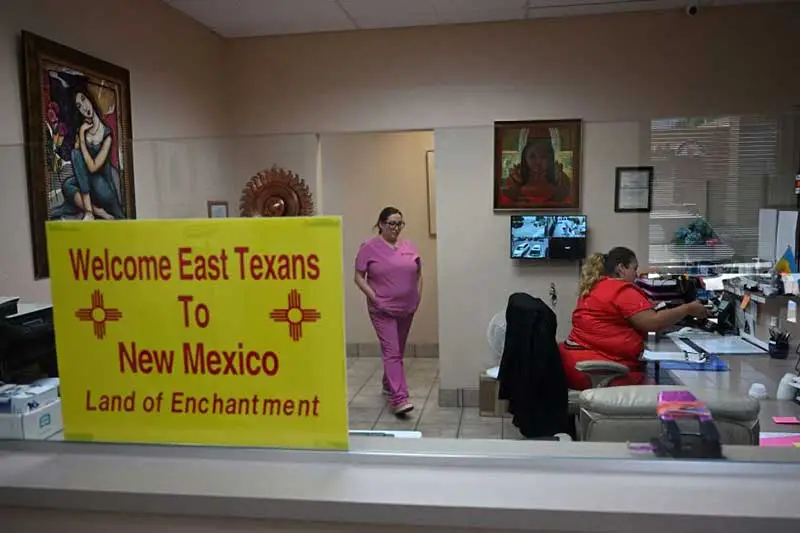 Getty
Getty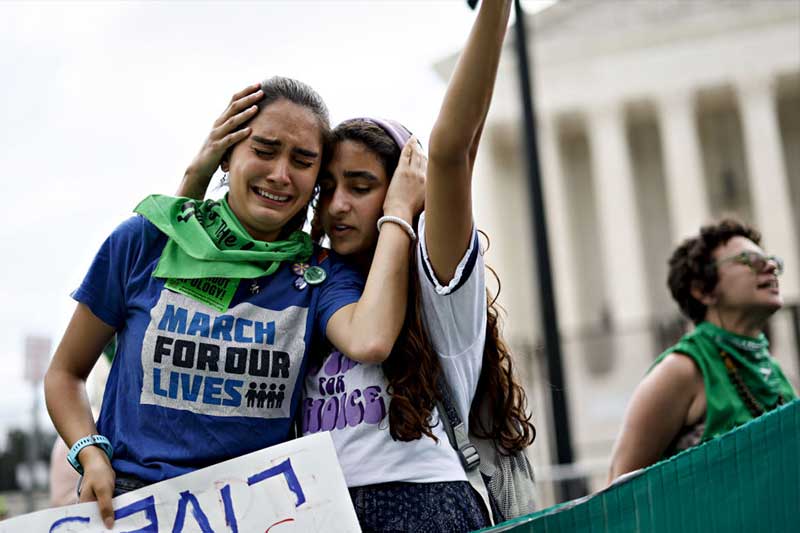 Getty
Getty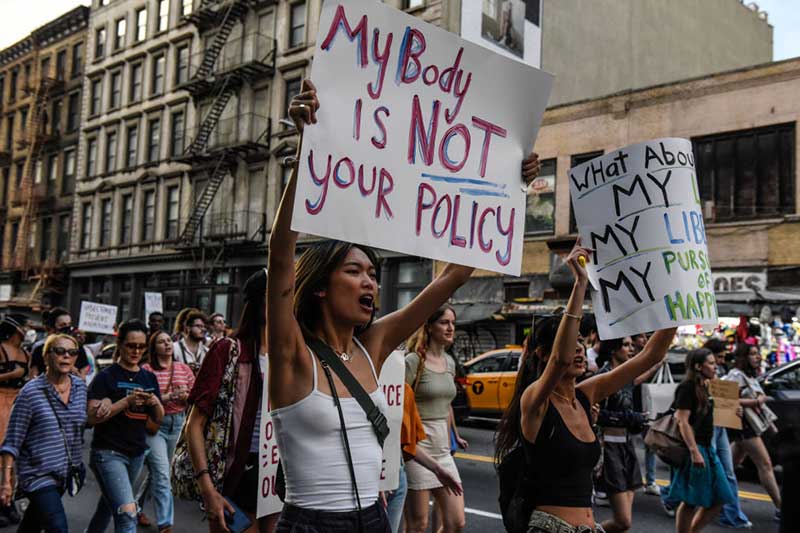 Getty
Getty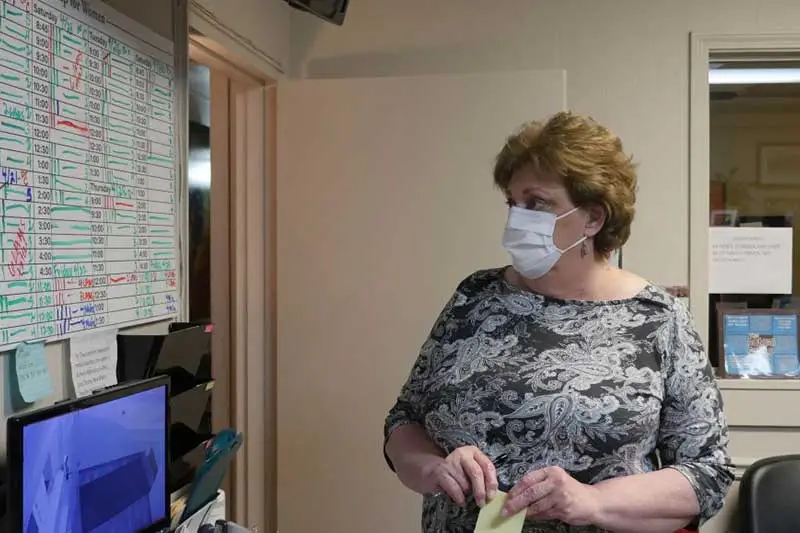 Getty
GettySince the Dobbs decision, an undaunted reproductive justice movement has joined forces with everyday people determined to protect their rights and freedoms. Together, they are charting a new path to not only win back the rights of Roe but expand access to all.
In this rapidly evolving landscape, our grantees are also testing new models of advocacy. The Culture Change Fund, a collaborative of advocates and funders in Michigan, California and Georgia, are producing billboards, memes and content for TikTok and YouTube to engage young people in the fight for reproductive justice. SisterLove, a Black women’s sexual health organization out of Georgia, is dispensing reproductive rights information alongside condoms at sports stadiums. The Ms. Foundation is supporting a new network of Native American reproductive justice organizations to strengthen their efforts to increase advocacy and access on reservations where reproductive care is sparse.
Amid this flurry of activity at state and local levels, the reproductive justice movement is still forging ahead on the national front. A coalition of organizations came within 10 votes of passing federal legislation, the Whole Women’s Health Act, that would guarantee abortion rights in every state. While legislation remains out of reach given the current Congress, advocates are not content to merely regain the floor of Roe. All* Above All*, In Our Own Voice, Sistersong, among others are pushing to expand Medicaid and public funding for abortion, solidify the full array of reproductive health services for women of color, trans people and immigrants who are most likely to be uninsured, and champion sorely needed initiatives to reduce sky-high rates of maternal mortality among Black women.
What’s exciting is their efforts are now being backed by powerful new allies that have come forward in the wake of the Dobbs decision. After years of avoiding the issue, the American Medical Association and American Academy of Pediatrics are now in full support of abortion rights, recognizing the very real threats posed when people suffering miscarriages or unviable pregnancies cannot find a doctor or hospital willing to risk legal liability.
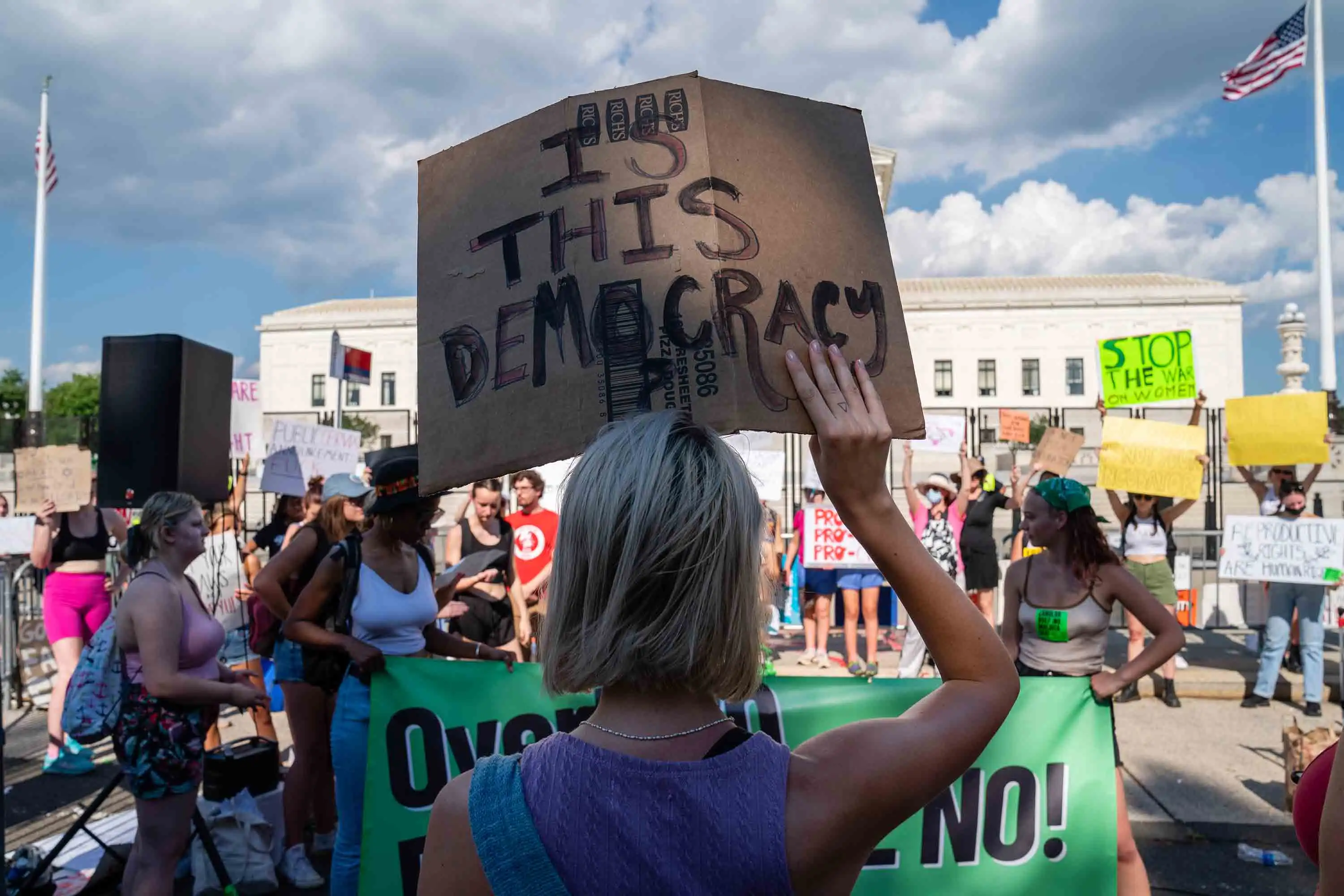 Getty
GettyAt the Ford Foundation, we believe access to abortion is not only a fundamental human right, but a key pillar of democracy and a pivotal step on the road to equality.
The American Prosecutors Association and Fair and Just Prosecution are also joining the fight, advising their members not to bring charges against doctors or abortion seekers. The prospect of criminalizing abortion remains real and present. In fact, upwards of 1,200 women have been arrested since Roe because their pregnancy outcomes—miscarriages, stillbirths, abortions, or neonatal losses—aroused suspicion regarding harm to fetuses. It is entirely possible that medical personnel or other informants will report suspected cases of abortion to police, and law enforcement will subpoena or otherwise access people’s internet searches and social media for evidence to support prosecution. In Nebraska, authorities arrested a teenager and her mother on a charge of abortion. For years, we have supported the National Association of Criminal Defense Lawyers and Pregnancy Justice to train public defenders to handle cases on pregnancy loss. Now, our Tech Fellow Cynthia Conti-Cook—who has been at the forefront of raising awareness on unlawful tech-enabled surveillance—is teaming up with the Digital Defense Fund to educate service providers, policy advocates and the public on how to protect themselves from tech surveillance.
With the U.S. more divided than ever and the debate on bodily autonomy at its most combative, we have much to learn from other parts of the world. While rights shrink here, we have seen Argentina legalize abortion, Benin adopt one of Africa’s most liberal laws on reproductive rights, and Colombia put into effect the most progressive law in all of the Americas. We are leveraging our global network to bring U.S. activists together with their counterparts in Africa and Latin America to share lessons in advancing and defending reproductive and transgender rights, another issue under assault by patriarchal actors around the world.
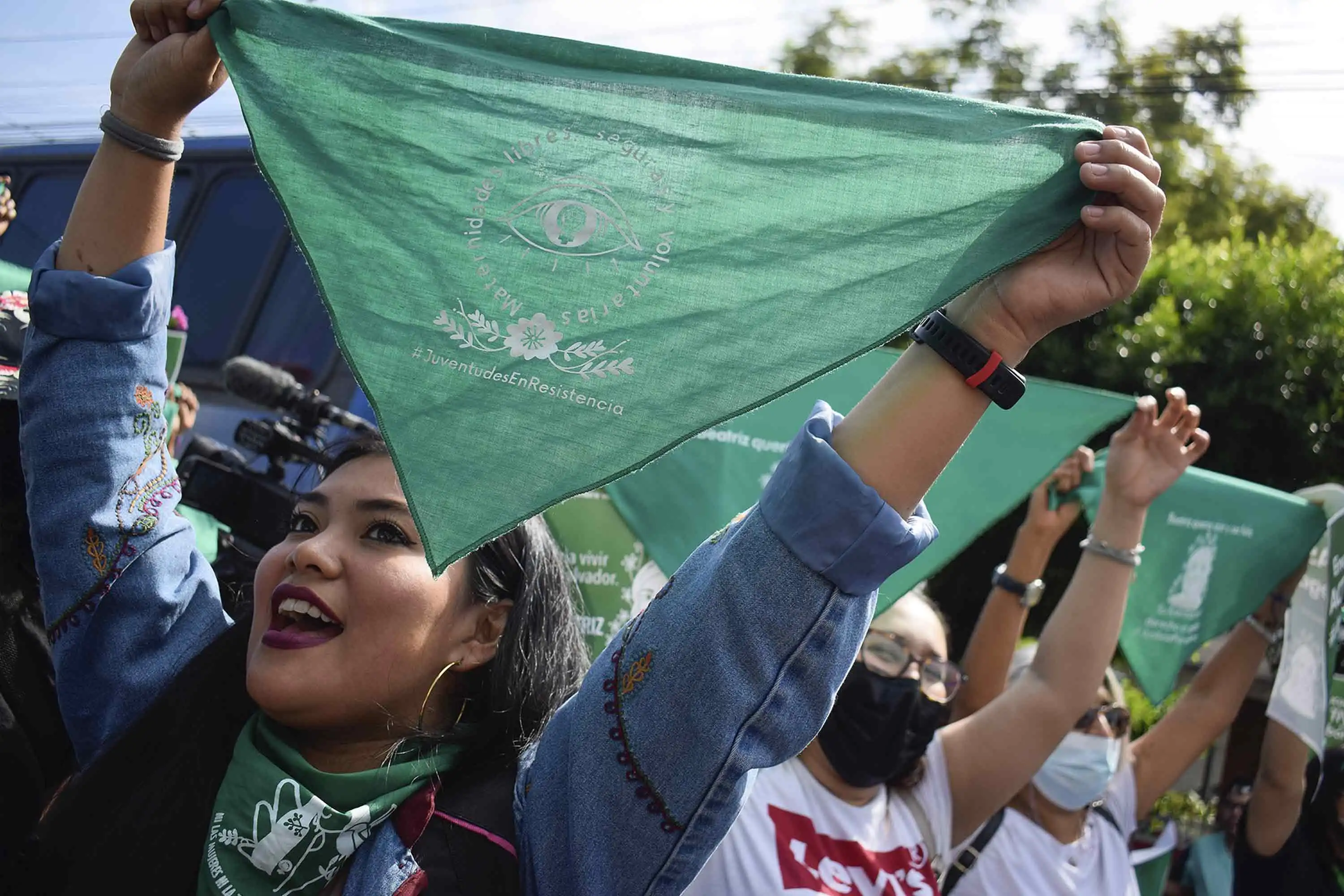 Getty
GettyIn the last few years, we have seen places like Argentina and Benin embrace legalized abortion and believe there is much to learn from these countries and the pro-choice movements that made this change possible.
The U.S. now joins a rogues gallery of only three other countries—Poland, El Salvador and Nicaragua—to have retrenched on abortion rights in the past 30 years. All three countries have struggled with rising polarization, dwindling civic space, and growing authoritarianism. It’s that very reason why the stakes in the fight for reproductive justice are higher than ever before. The reversal of Roe v. Wade is hard enough to comprehend, but it’s merely a harbinger of what’s to come. When the government crosses the line—whether it’s over our bodies or our ballots—we backslide toward a new kind of authoritarianism rising around the globe, one that wages culture war on women, ethnic minorities and gender nonconforming people as a means of consolidating power, and masquerades as democracy without giving people the rights and freedoms they deserve.
At the Ford Foundation, we believe access to abortion is not only a fundamental human right, but a key pillar of democracy. A healthy, participatory democracy means a person can exercise their bodily autonomy. It means people, no matter their sex, race, gender or economic situation, have the power to determine their future and define their family. And it means a government understands its role is to protect its people and their interests.
For nearly 60 years, we have worked to advance gender equality and reproductive justice and support individuals and institutions undaunted by the size and scope of the challenges that come with that mission. While the overturning of Roe v. Wade was undeniably a destructive turn in the wrong direction, these leaders and organizations are proving once again what’s possible. Reenergized and relentless, they are charting a path forward to not just win back those rights but expand abortion access to all.
As a tax-exempt 501(c)(3) private foundation, the Ford Foundation does not engage in or support political campaign activity.
Ford funds the following organizations through the fiscal sponsors cited here: All* Above All via the New Venture Fund; URGE via Rockefeller Philanthropy Advisors; ARC Southeast via National Network of Abortion Funds; Culture Change Fund via New York Foundation; and Digital Defense Fund via Hopewell Fund.


